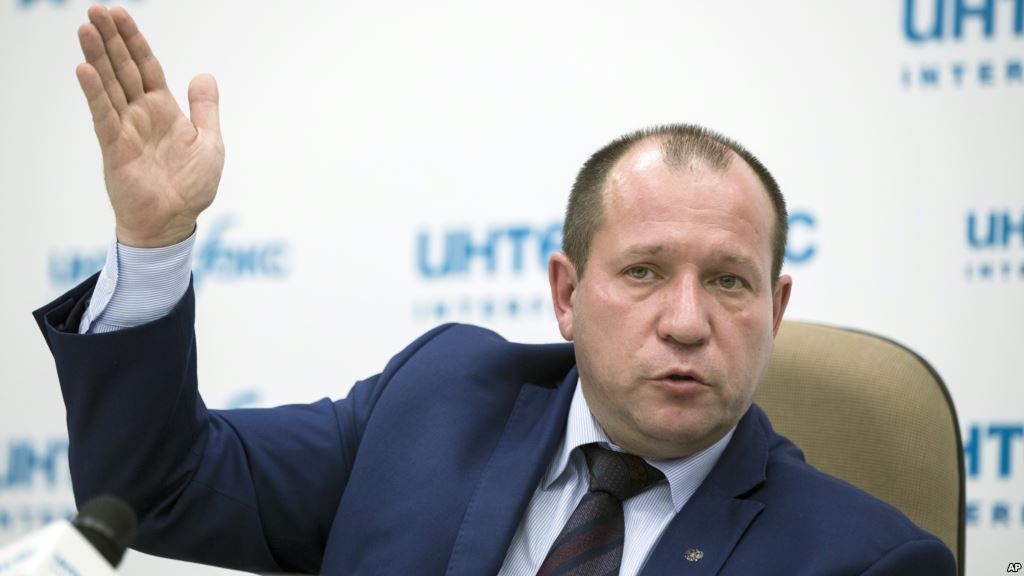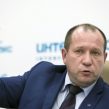
Several North Caucasus Human Rights Organizations Labeled ‘Foreign Agents’
Publication: Eurasia Daily Monitor Volume: 12 Issue: 159
By:

After the scandal following the labeling of the Russian human rights organizations like Memorial, under the leadership of Oleg Orlov, and Grazhdanskoe Sodeistvie, under the leadership of Svetlana Gannushkina, as “foreign agents,” it was expected that rights groups in the North Caucasus would be the next targets. Nearly 9,300 non-governmental organizations (NGO) are registered by the Russian Ministry of Justice in the North Caucasus. About 3,500 of them are civil organizations, movements and foundations, 2,000 are religious organizations, and the remaining institutions include unions and self-regulating professional organizations. The majority of the NGOs are located in Stavropol region and Dagestan, about 3,000 in each (Yug.svpressa.ru, July 8). Many of the NGOs have been looking to Western grants for supporting their activities, since they could not earn their own money or survive on voluntary donations at home.
Websites with ties to the Russian government started to post materials pointing to possible “foreign agents” even before the Ministry of Justice published such lists. An expert on the Caucasus, Vitaly Soshestvensky, thinks that hundreds of NGOs from the United States have representatives in the North Caucasus and fund them (Bs-kavkaz.org, June 5). According to Soshestvensky, “Western NGOs primarily target the politically active part of the population, first of all the young people, to fuel separatism among them.” The author points to the former American Committee for Peace in Chechnya (that was previously operated at Freedom House), alleging that it actively works in all the republics of the North Caucasus, even though the committee ceased to operate more than ten years ago. Soshestvensky further enumerates dozens of organizations that received Western grants and sees that as the proof of betrayal of the interests of Russian society.
The hunt for “foreign agents” has now also arrived in the North Caucasus, with the Committee Against Torture, led by Igor Kalyapin, being the first target. The organization was registered in Nizhniy Novgorod (Slon.ru, July 8), but actively worked in Chechnya (Lenta.ru, June 4). The Interregional Civil Foundation for Peace in the South and the North Caucasus followed (News.1777.ru, June 25). The foundation was registered in the city of Stavropol in 2010.
On August 17, the Kabardino-Balkarian Civil Human Rights Center, a respected and influential human rights organization headed by the well-known civil activist Valery Khatazhukov, was labeled a “foreign agent,” followed a week later by the Human Rights Center of the Chechen Republic, headed by veteran Chechen human rights activist Minkail Ezhiev (Kp.ru, August 23).
The list of foreign agents is likely to expand because the regional authorities are deciding who to label as a foreign agent by compiling lists of organizations for the Russian justice ministry. It is safe to predict that any organization that is independent and criticizes the government will end up on the list. The Chechen authorities have already proposed including on the list of foreign agents eight organizations, while the justice ministry has confirmed only two of them so far. The Socio-Psychological Resource Center—Uspokoenie Dushi (SINTEM)—led by Inna Airapetyan, might be the next Chechen organization labeled a “foreign agent. The government also plans to start examining non-profits in Ingushetia and Dagestan. Thus, in the near future, a new, updated list of “foreign agents” in the North Caucasus can be expected.
At the same time, the Russian communications ministry has proposed new legislation that would force media outlets to rid themselves of “foreign agents” among their founders. This would undercut the established ties between rights organizations and the media (Vedomosti, August 18).
In July 2015, the upper house of the Russian parliament, the Federation Council, adopted the so-called “patriotic stop list,” which is designed to ban the activities of foreign organizations. The government included 12 foreign organizations on the list—seven from the United States, three from Ukraine and two from Poland. The parliament handed over the list to the Prosecutor General’s Office so that these organizations could be investigated for anti-Russian activities. The list includes such significant non-profits as the Open Society Foundations, the John D. and Catherine T. MacArthur Foundation, Freedom House, the National Endowment for Democracy, the International Republican Institute, the National Democratic Institute for International Affairs and the Charles Stewart Mott Foundation, and thereby threatens the existence of the vast majority of non-profit organizations operating in the North Caucasus (Noguasamonga.ru, August 17). The expulsion of everyone who exposes the Russian government’s violations of human rights in the North Caucasus seems to be the main objective of the Russian political elites.
The Russian government has listed two-dozen Western organizations as hostile, including The Jamestown Foundation. According to the authors of the list, Jamestown financed programs in the North Caucasus (Vz.ru, July 1). In reality, The Jamestown Foundation has not provided any grants to organizations working in Russia, because it focuses on research and analysis and is not a grant-giving foundation.
Russian authorities are essentially cracking down on organizations and people who disagree with them, and in doing so, seem to be returning to something like the Soviet totalitarian system of control by state ideology. Even though it is impossible to restore the Soviet past, it is possible to pressure rights activists and groups and force them to shut down. A government-led campaign that targets rights organizations will worsen the human rights situation in Russia, particularly in such a complex part of the country like the North Caucasus, and will further cripple the flow of information coming from the region.




